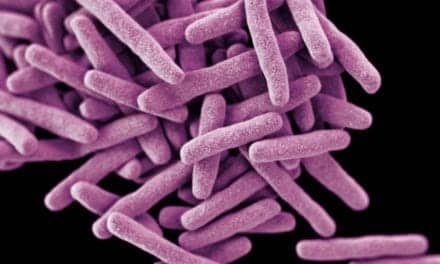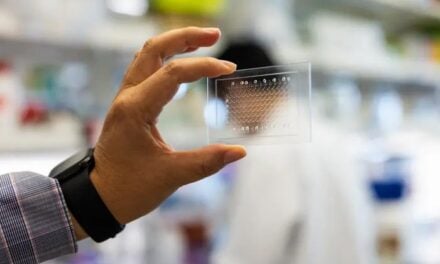Scientists have taken a major step toward developing a blood test that could identify millions of people who spread tuberculosis unknowingly.
A breakthrough study has discovered a group of biological markers that are found in high levels among infectious patients. The researchers hope the findings will pave the way for a simple test that can diagnose and stop the spread of the estimated 10 million cases annually.
Tuberculosis, or TB, is the world’s deadliest infectious disease and kills more than one million people each year, according to World Health Organization data. Scientists from the University of Southampton, working with experts worldwide, carried out a detailed analysis of blood markers for the bacterial infection.
Diagnosing and Halting the Spread of Tuberculosis
The study, published in the Journal of Clinical Investigation Insight, used a novel technique that identified a set of six proteins that are highly accurate in pinpointing TB.
Lead author Dr Hannah Schiff, a respiratory expert at Southampton, said as many as three million cases were missed last year, mostly in developing countries.
“In our study, we combined a new measurement technique with deep mathematical analysis to identify these six new markers of TB disease,” says Schiff. “It could lead to a transformative alternative to diagnosing the condition – a simple test that detects proteins in the bloodstream whose levels differ between people with TB, healthy individuals, and those suffering from other respiratory illnesses.”
Further reading: Understanding Latent Tuberculosis Diagnosis
Importance of Addressing Airborne Diseases
TB spreads through inhaling tiny droplets from coughs or sneezes of infected people – and, while it mostly affects the lungs, it can devastate any part of the body.
Cases in the United Kingdom increased to around 5,000 last year, and are expected to continue rising in 2024, according to the UK Health Security Agency.
The University of Southampton study was undertaken with experts from the University of Cape Town in South Africa and Cayetano Heredia University in Lima, Peru.
The study was funded by the UK Medical Research Council and the National Institute for Health and Care Research (NIHR) Southampton Biomedical Research Centre.
Academics leading the investigation studied proteins found in the blood of people with active TB in Africa and South America.
Examining Blood Markers for TB
They compared the biomarkers to those found in healthy people and patients with lung infections, identifying 118 proteins that differed significantly between the groups.
The experts then narrowed these down to the six proteins that, they said, can be used to distinguish contagious patients with TB from people in good health or with lung conditions.
The findings are a roadmap to developing a TB test that is as simple as the lateral flows used during Covid, says study co-director Diana Garay-Baquero, PhD, also from Southampton.
“The new markers we discovered are truly exciting, but the important work now is to develop these into tests that can be used for the millions of people who are transmitting TB without knowing it,” she added. “As the Covid-19 pandemic confirmed, we ignore highly infectious airborne diseases at our peril.”
Featured image: Discovery of biomarkers found in highly-infectious patients raises hopes of new TB test. Photo: University of Southampton





